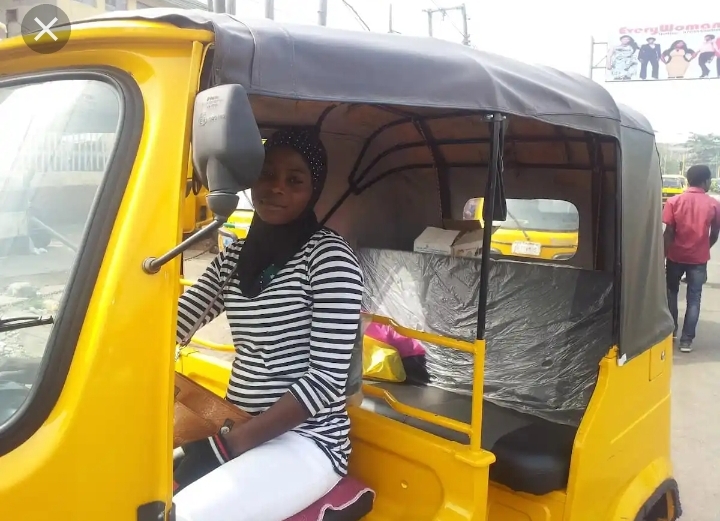With the present economic situation, many women are beginning to act out the popular saying that ‘what a man can do, a woman can also attempt’.
This is as many women are now taking to trycycle, otherwise known as keke, driving.
Economy & Lifestyle discovered that there is now an influx of women venturing into keke driving in short distance routes like Ikotun to Cele Bus stop, Ikorodu areas of Igbogbo, Ijegun, Abaranje, Surulere, among other routes in Lagos State.
One will wonder how these women survive amidst the hustling and bustling in the state.
Mrs. Eunice Afolabi, a fashion designer now turned commercial tricycle (keke napep or maruwa as popularly called) driver is one among many of the women in the business who spoke to Newsmen.
According to her, “I have been in this job for over a year now. It has not been easy.
Two years ago, I was selling corn and other seasonal food items.
“But there was no gain and we were managing. But the expenses were increasing. House rent has increased, school fees have increased too, talk of foodstuff and other bills.
“My husband’s business is not lucrative anymore. He is a mechanic and since the removal of fuel subsidy many of his customers have parked their cars at home.
“A family member bought this Keke for me. I deliver N2,500 daily to ease the burden of full payments for the Keke.
“It has helped my family a lot more than the seasonal food I was selling before.
“I do run Ikotun to Gate six times and return home around 11 am and another six rounds in the evening. I close as early as 7 p.m because I am a woman. I need to take care of my family and also it is dangerous to work at night so that my vehicle should not be stolen.
“When I started the job, it was difficult for me to load passengers and deal with the levy collectors.
“Many women are venturing into the business. There are up to eight women running this route. Some drives koripe (mini bus) to cele express. Many colleagues who couldn’t deal with the challenges in the business worked for a while and quitted.
“But those who endured are still in the business. You need to be very strong, smart and bold especially in such a business dominated by men.”
Mr. Rotimi Lawrence, a korope driver en-route Ikorodu to Igbogbo confirmed the influx of women in commercial transport in most parts of the country.
“Years back, the commercial transport business was very lucrative. In a hundred persons doing the business you can only find one woman.
“This is because there are other lucrative and less stressful businesses for women then.
However, despite the challenges in the economy that has seriously affected this business women are still going into it.
“Everywhere in Lagos where there are keke napep parks and korope even danfo buses are driven by women for commercial transport.
“When I asked one how she was coping, she asked me how I was coping. That means the stress I am passing through in the business she is also experiencing.
“The business is good for a woman with grown up children or a single lady. Not for those who have little children at home.
“This is because; combining house chores and the business would be very hectic for such women except she is very strong and hardworking.”
Mr. Richard Obuh, a businessman in Portharcourt said he was surprised at the rate at which women now go into commercial transport citing the risk of stress, armed robbery and possibly death.
“It is a thing of pity and also prides what the economy has turned most of our women to.
It is a pity because women are now seen doing tedious jobs to put food on the table.
“Most men have been rid of their means of survival making their wives double as the wife and bread winner of their families.
“Some men have absconded from their families because of the shame of the inability to provide their daily bread.
“These among other things have led women into doing hectic jobs such as commercial transport to survive.
“Here in Portharcourt, you will see women struggling to get passengers alongside their male counterparts.
“This trend is also seen in other states. This shows you that what a man can do a woman can also do which is a thing of pride.”
Mrs. Adebusayo Shodimu, a Nursery school teacher said if she could get a Keke napep she would join her husband in commercial transport to assist with the family needs because her salary and that of her husband’s cannot foot their bills anymore.”
